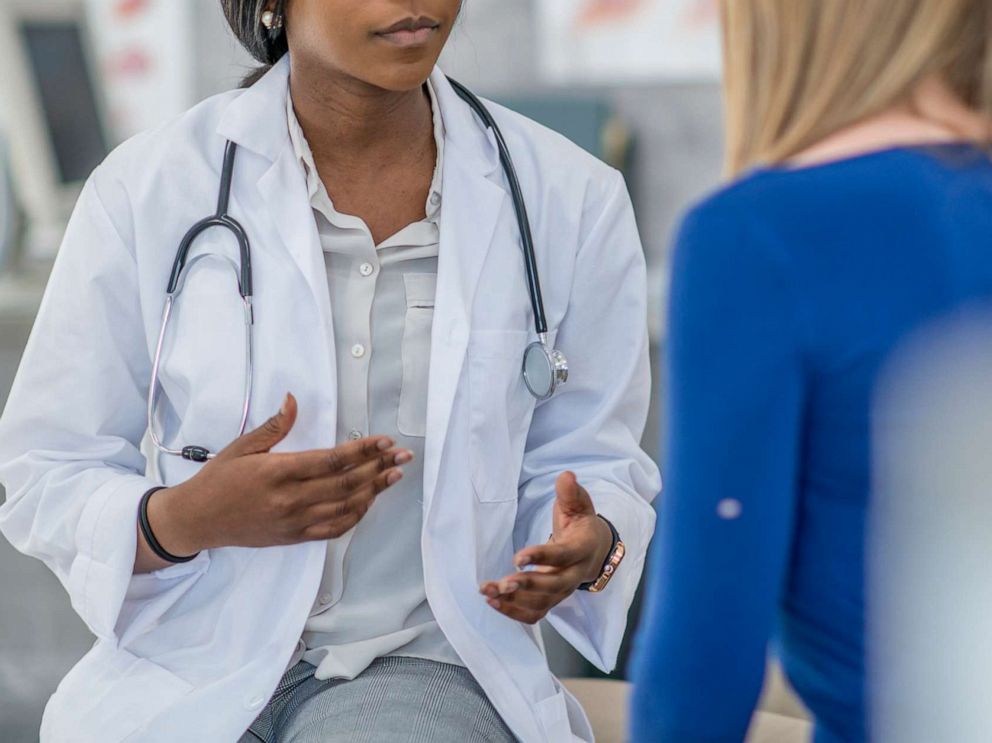Survivors of sexual assault may face many physical and psychological challenges while they heal, but a new cadre of nurses at Hofstra University in Long Island, New York looks to improve care to this unique set of patients from the first time they arrive in the hospital.
The Centers for Disease Control reports that even though many cases go unreported, sexual violence is shockingly commonplace, with one in three women, and one in four men, experiencing it.
The Sexual Assault Nurse Examiner (SANE) program at Hofstra graduated its first class of 19 nurses, who trained to provide high quality care to survivors of sexual assault at a very vulnerable moment: when they first seek medical attention.
“This is difficult. These are not topics that we were socialized to deal with as children,” Amy Smith, a Nurse Practitioner and coordinator of Hofstra’s SANE program, told ABC News. “(Historically) It was considered private and shameful. We are now saying that this should not be the shame of the survivors. We are trying to make this a more comfortable conversation for healthcare providers so that the patients feel the same.”
Heidi Wilkie, a rape survivor from Omaha, Nebraska, who helped found a SANE program at Omaha Methodist Hospital, strongly agrees with the need for such training. “I wanted to build something good out of something so bad,” she told ABC News. There were no such trained health providers at the emergency room where she first went to receive medical care. She says that having a trained examiner do the initial exam “makes a big difference,” describing how another provider had to oversee the nurse do a forensic exam on her.
“Just talking to people who have been through it, I know it has made a big difference,” Wilkie said.

The SANE program involves training to not only provide empathetic, trauma-informed care, but also to conduct timely forensic evidence collection in a culturally sensitive manner. Smith believes that one unique aspect of their program is that it has partnered with the Hofstra law school to have law and nursing students train together on how to be questioned by a judge and how to be able to speak as an expert witness.
Wilkie reaffirms the importance of this, “I did not have any nurses to come and testify for me. It probably would have been helpful because all that evidence that gets gathered would have been specific and done properly.”
The importance of having trained professionals do the initial forensic exam can also be crucial for bringing justice to the survivors more quickly. “What’s interesting about it in Omaha is that sometimes when the perpetrator knows there’s going to be a SANE nurse, the perpetrator will back off from the ‘not guilty’ plea,” explained Wilkie.
This is a need that may only become more pronounced over time. “As people are being educated about their rights, they’re coming forward more now. We don’t want to limit where patients can go. Any emergency department should be able to care for you,” Smith said.
The New York State Department of Health has been working to address this challenge through the Sexual Assault Forensic Examiner (SAFE) program, which includes a 40-hour training program for health providers, including doctors, physician assistants, nurses and nurse practitioners. In a statement to ABC News, the Department of Health reported that “all hospitals in New York must have trained medical staff readily available to perform the sexual assault medical forensic exam.” There are currently 464 SAFEs in the state of New York.
The Sexual Assault and Violence Intervention (SAVI) Program at Mount Sinai Hospital in New York City is one of 45 SAFE-designated hospitals in the state. SAVI trains volunteers to be made available for survivors of sexual or violent attacks, independent of the professional health care and law enforcement officers. Lynn Frederick Hawley, the executive director of SAVI, says they have been doing this work for decades and that it has impacted the culture of the Mount Sinai health system.
“A completely non-income generating program is now considered a key element to the care provided in a system,” Frederick Hawley said. “We get calls from all departments in Mount Sinai to refer survivors who may be patients or even employees. It’s good not just for the general community but for the community of the hospital.”
Moreover, Frederick Hawley wants survivors of sexual assault to know that even if they are not feeling comfortable reporting to police at this time that, “they can still get good medical care and follow-up, that they can have evidence collected and stored for up to 20 years.” This would allow survivors to come forward to police whenever they feel ready to do so, if they want to.
Smith hopes that by training more health providers through programs like SAFE and SANE, local communities can know where survivors can go to get the compassionate, high-quality medical care they deserve.
Nithin Paul, MD MPH, is a family medicine and preventive medicine resident physician at MedStar and Johns Hopkins University writing for ABC News’ Medical Unit.
Source: Read Full Article
